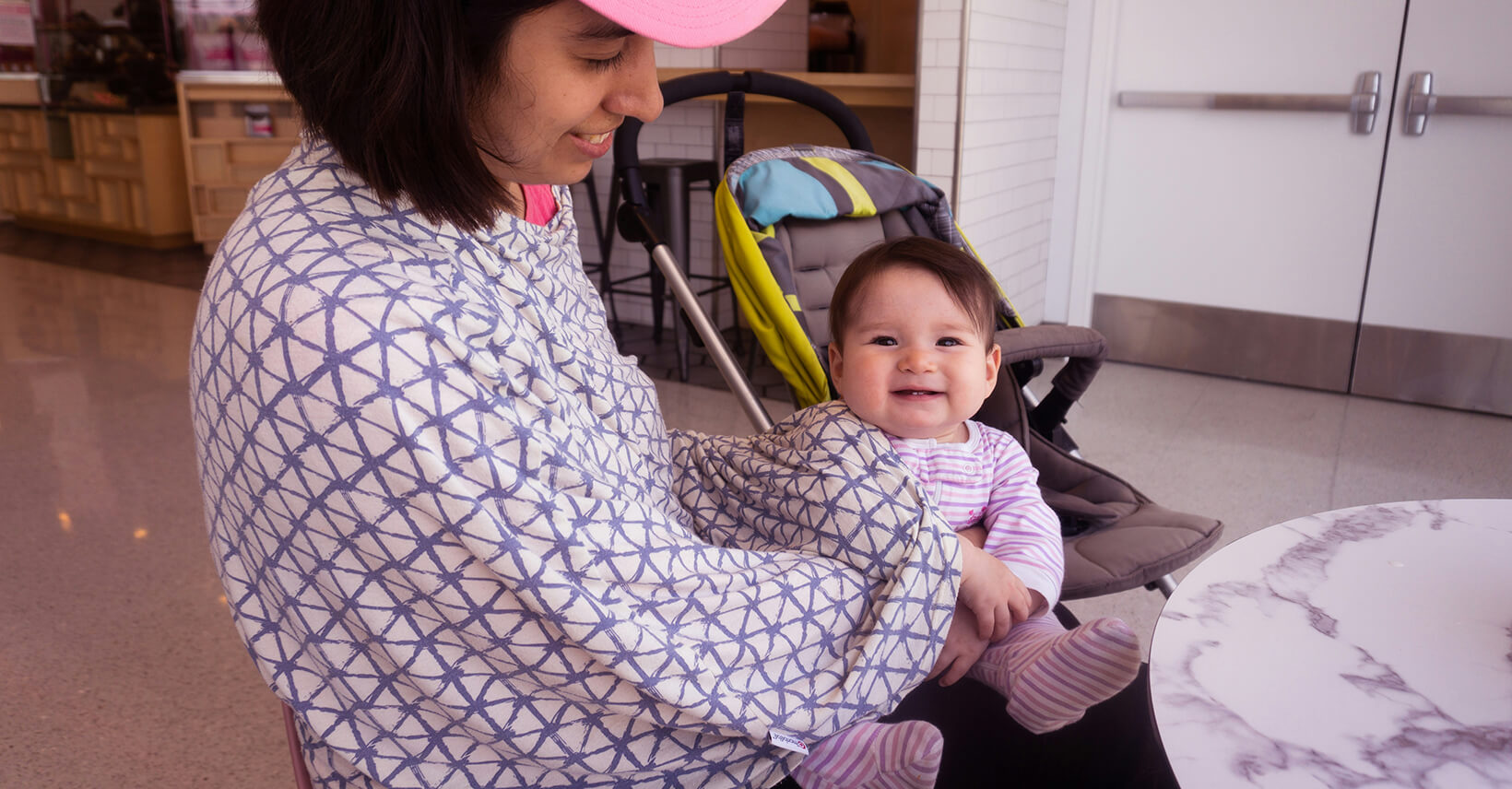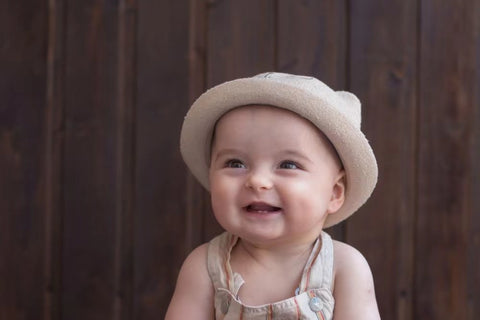


Have you ever thought about when babies begin to smile? It's a lovely time for parents, but the timing can vary for different babies. In today's blog, we're going to learn all the information about baby smiles together.
When babies start smiling is a question often asked by new parents. Typically, babies begin to show their first smile at 6 to 8 weeks of age. The smile does not happen by accident but is an important milestone in a baby's development.
Smiling is one of the first ways your baby communicates and connects with people. Don't be in a hurry, it will come on time.
There are common two types of baby smile:
Reflex smiles are the first smiles of a newborn and usually occur in the first few weeks of life. Reflex smiles are unconscious and are usually reflex responses for some internal simulations, such as:
In essence, reflex smiles are more like contraction of facial muscles than intentional expressions of emotion. Reflex smiles may occur during sleep or when the baby is under a relaxed condition and does not necessarily indicate that your baby is experiencing joy or happiness.

Social smiles, on the other hand, begin to appear at 6 to 8 weeks of age. Different from reflex smiles, social smiles are intentional and are the responses to social stimuli.
Babies begin to smile as a form of interaction with their parents, such as
Social smiles indicate that your baby is beginning to recognize and engage with the people around them. Social smiles are essential for establishing a bond between the baby and their parents and are an early form of communication for babies. Social smiles always show your baby is happy and ready to interact with people. As your baby grows and develops, social smiles become more frequent and will play a vital role in a baby’s social and emotional development.
An infant's smile is closely related to their development. Research has shown that infant smiles are not only a facial expression but an important part of their social and emotional development. Studies have found that smiling helps infants bond with their parents and understand what it means to socialize. When a baby is smiling, it shows that he or she is happy and would like to be engaged with their surroundings.
In addition, when infants smile, they can get a positive response from the adult, which encourages the infant to smile more. Smile plays an important role in language development, as parents often talk or interact with smiling babies, helping them learn new words and communication skills.
What’s more, smiling also has been linked to cognitive development. Babies who smile often tend to be more curious and eager to explore their surroundings. Curiosity encourages them to learn and understand the things around them, which promotes cognitive development.
Essentially, the relationship between baby smiling and development is manifold. Smile influences a baby's social, emotional, language, and cognitive development in important ways, providing a foundation for healthy growth and learning.
If your baby can't smile yet, parents should be patient. Every baby develops at his or her own pace and not all babies reach milestones at the same time. If your baby is not smiling yet, parents can try to make eye contact, talk, and play with them. These interactions may help to stimulate the baby's social and emotional development, potentially encouraging them to smile.
On the other hand, parents should also make sure that their babies are healthy and getting enough sleep and nutrition. Sometimes some factors such as tiredness, hunger, illness, or discomfort can affect a baby's mood and ability to smile.
If the baby is still not smiling after several months, parents should discuss it with the pediatrician. The delay of smiling is sometimes normal, but it can also be a sign of a developmental problem. It’s better to find a doctor to double-check.
Overall, paying attention to your baby's needs and providing a supportive and nurturing environment is the key. With time and care, every baby will likely reach this milestone of development in their own time.

What to do if your baby is not smiling yet? Here are some tips on how to encourage your baby to smile:
Spending quality time with your baby is essential for bonding and social development. Try to talk, sing, and play with your baby. Make sure to maintain eye contact with your baby and express love through gentle touch and cuddling.
Babies are responsive to facial expressions. Smile at your baby often and use different facial expressions to express different emotions such as happiness, surprise, or excitement. Your baby may mimic these expressions and eventually develop their smile skills.
Parents’ voices will always attract your baby. Talk to your baby more often. Use a soothing tone of voice to catch your baby's attention and encourage a smile or other interaction.
Peek-a-boo is a classic game that babies love. Cover your face with a hand or cloth, then reveal it and say "Peek-a-boo!" This game can always make babies laugh.
Provide your baby with a variety of toys, brightly colored objects, and interesting things to explore. Change toys regularly to keep your baby engaged and curious. A stimulating environment will stimulate your baby's curiosity, which will lead to more smiles and engagement.
Remember that every baby develops at their own pace. Some babies may take longer to start smiling than others. Be patient and continue to engage with your baby consistently.
In summary, the time at when babies begin to smile varies from baby to baby, but in general, most babies begin to smile socially at 6 to 8 weeks of age.
Parents play a vital role in nurturing a baby's social and emotional development. Continual interactions such as talking, playing, and making eye contact can encourage babies to smile.

Lily Hou
An expert in sleep sack design, is a valued contributor to Kaiya Baby's blog. With a strong background in baby sleep bags and maternal care, she is highly regarded for her professionalism. Lily prioritizes baby comfort and safety in her designs, using high-quality materials. Her insightful articles on sleep bags have been featured in reputable publications and have gained a significant readership. Trust Lily to help you create a comfortable and safe sleep environment for your baby, backed by her proven track record in the industry.
Leave a comment
This site is protected by hCaptcha and the hCaptcha Privacy Policy and Terms of Service apply.